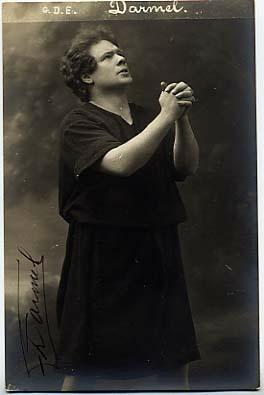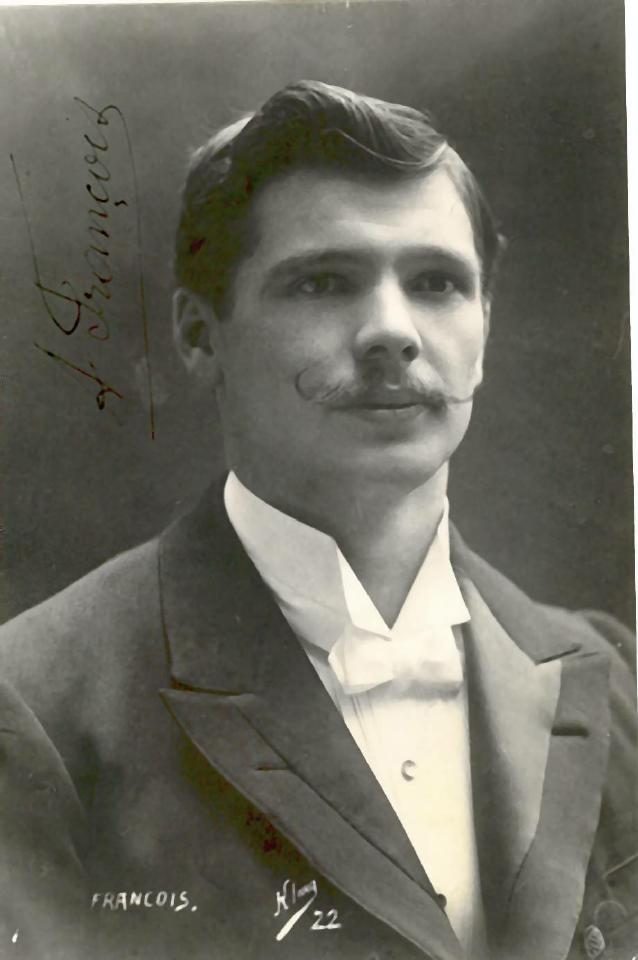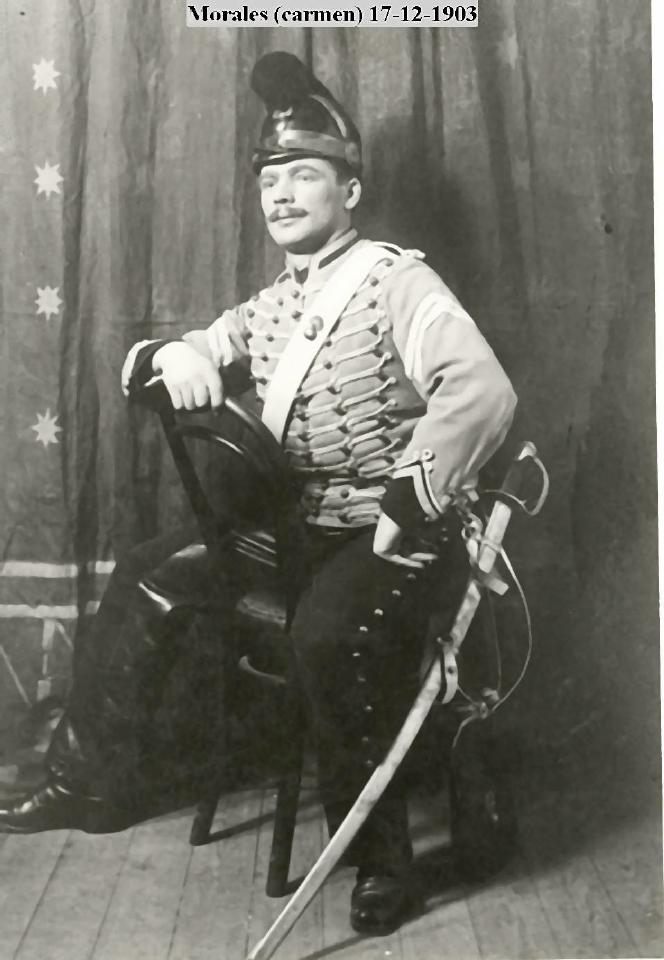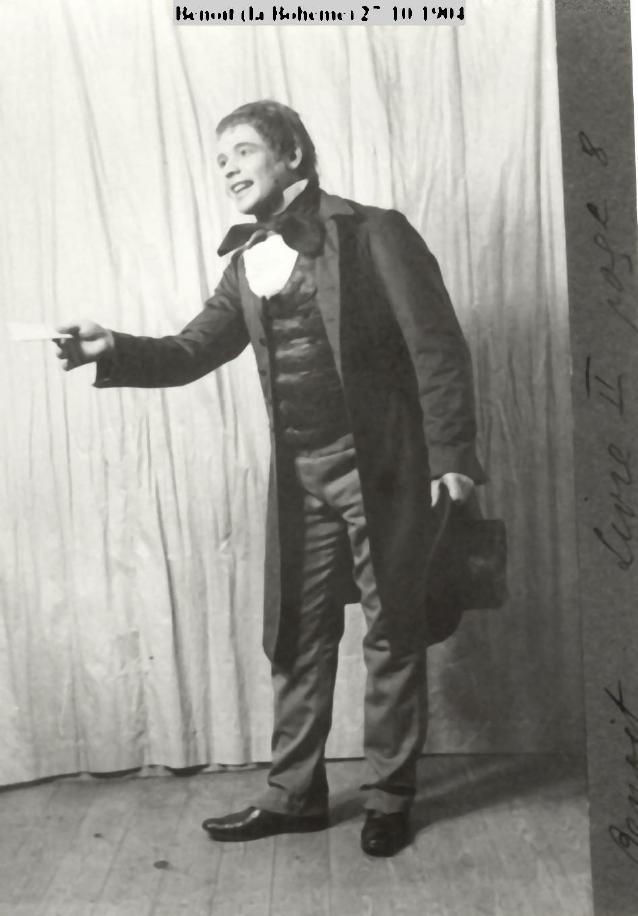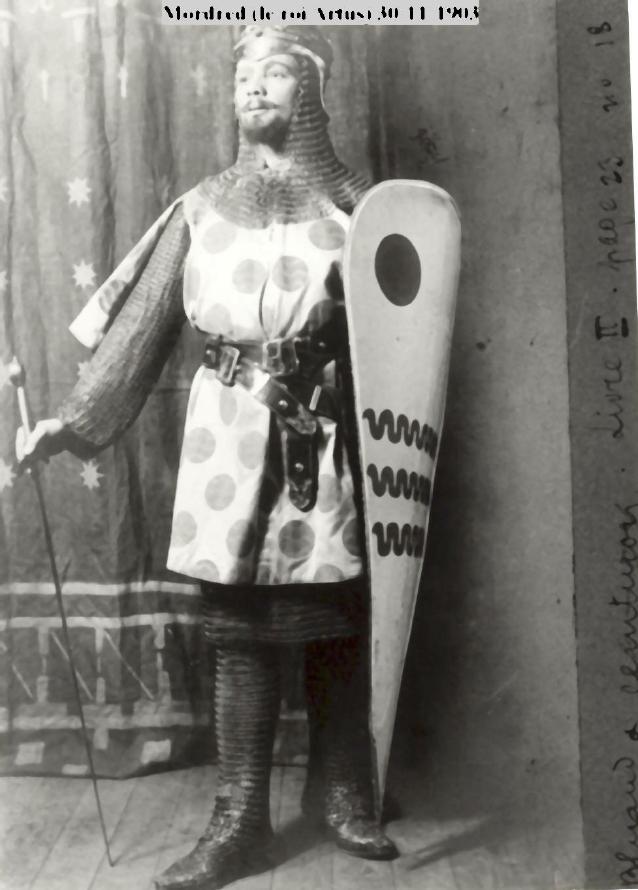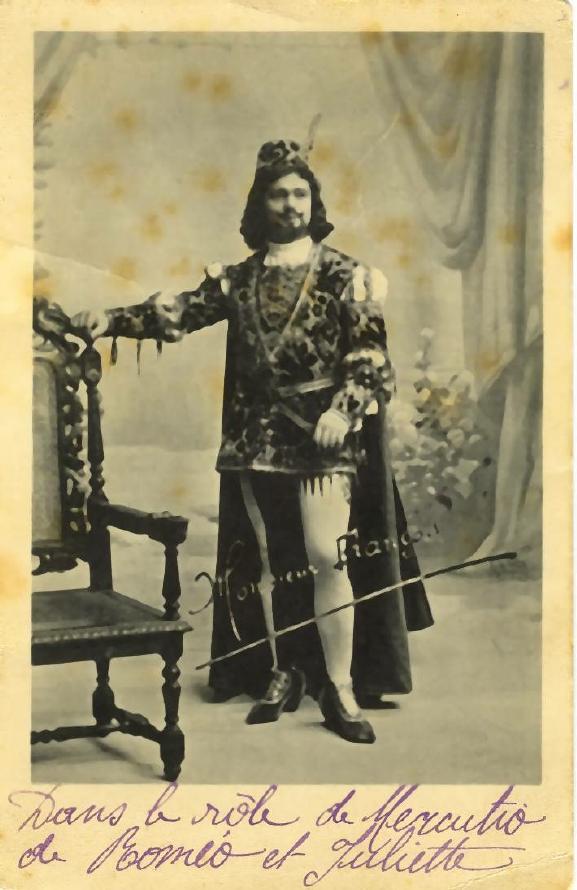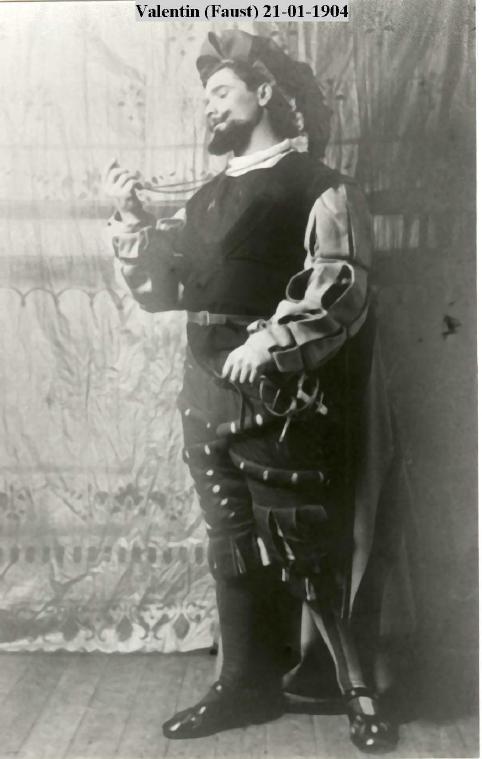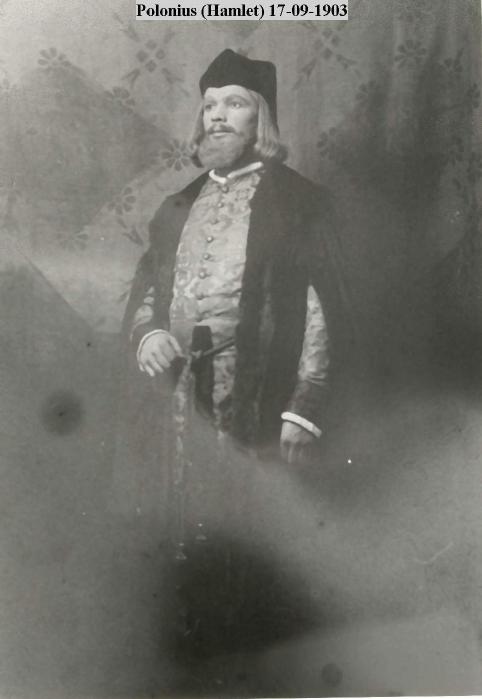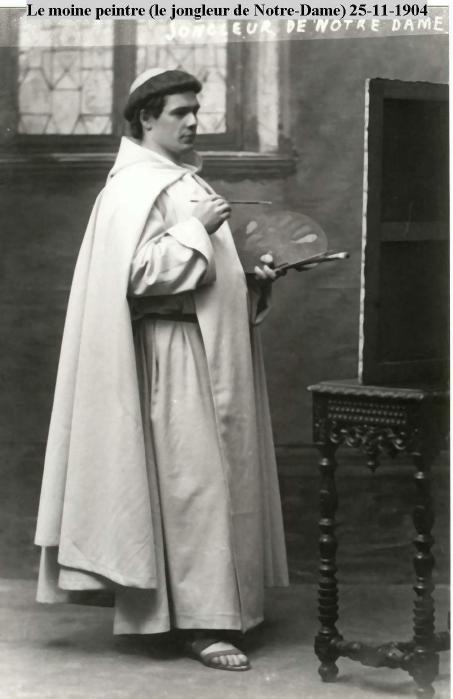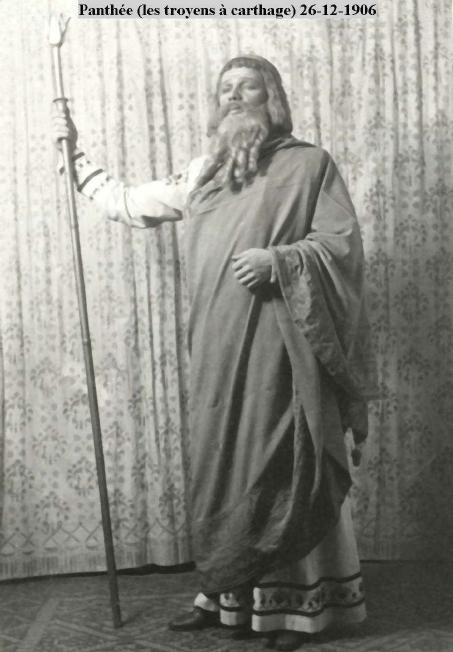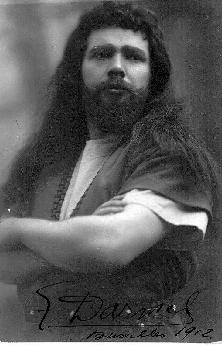Arthur Darmel
Darmel (born Arthur François) was born on March 20, 1879 at Bouverie (close to Jemappes) in Belgium. He was the elder of five children.
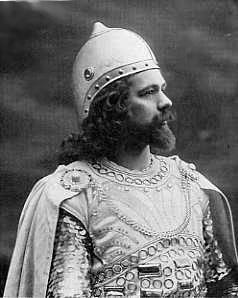
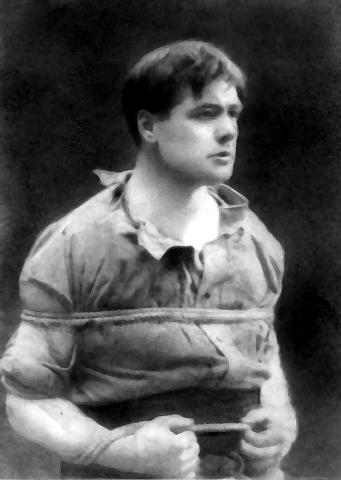
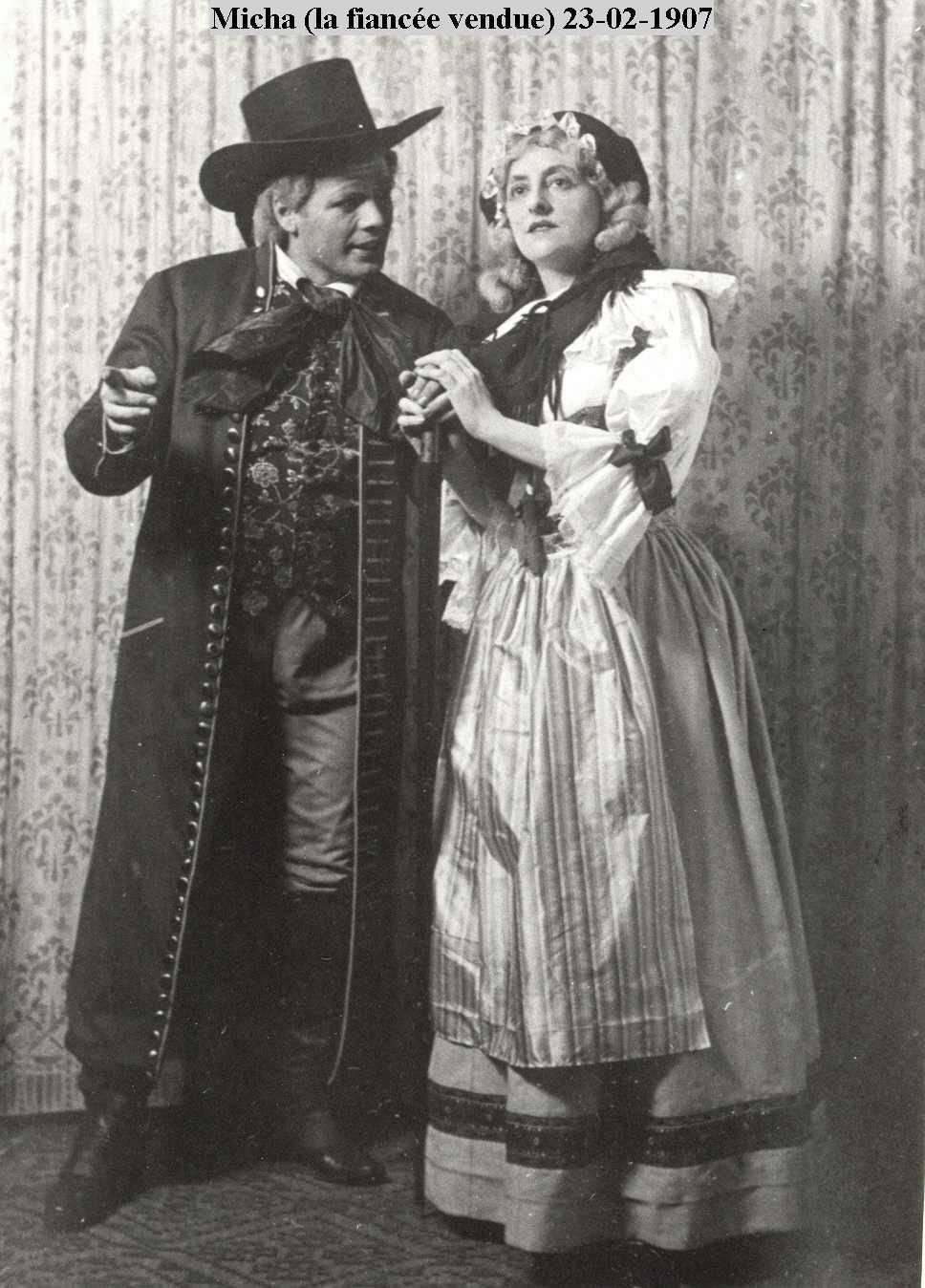
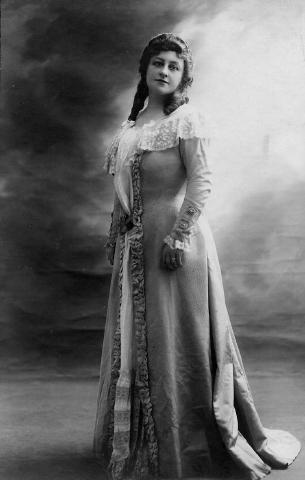
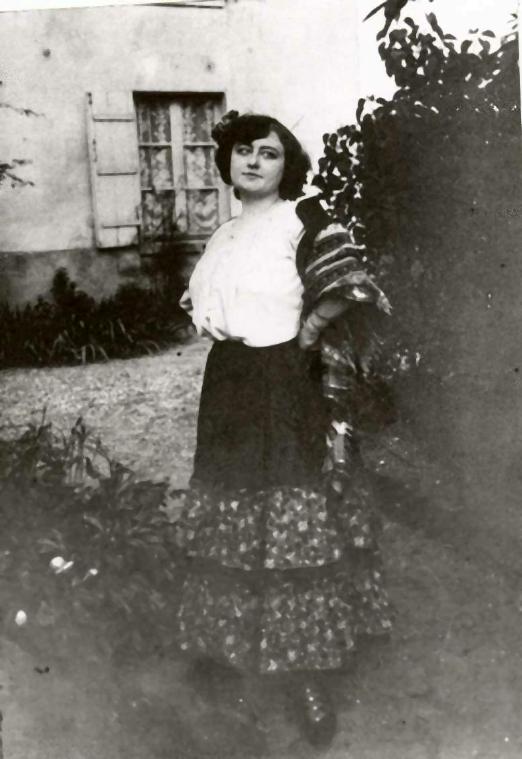
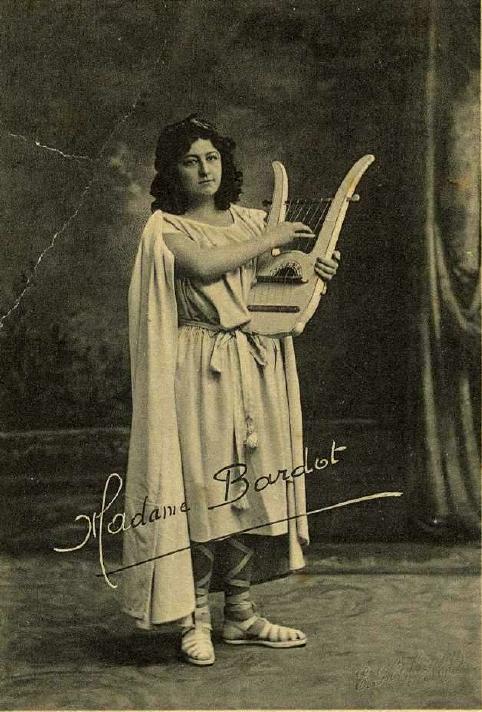
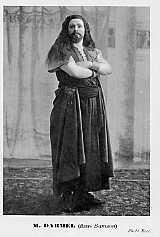
As baritone under the name Arthur François, 1903-7 Le roi Arthus (Mordred) – Brussels, Monnaie, 30 November 1903 Tosca (Géolier) – Brussels, Monnaie, 4 February 1904 Le jongleur de Notre-Dame (Moine peintre) – Brussels, Monnaie, 25 November 1904 Alceste (Hérault) – Brussels, Monnaie, 14 December 1904 Martille (Jerôme) – Brussels, Monnaie, 3 April 1905 Princesse Rayon de Soleil (Un scalde) – Brussels, Monnaie, 8 September 1905 Armide (Aronte) – Brussels, Monnaie, 7 November 1905 Résurrection (Un paysan) – Brussels, Monnaie, 18 April 1906 Madame Chrysanthème (Un gabier) – Brussels, Monnaie, 9 November 1906 La prise de Troie (Panthée) – Brussels, Monnaie, 26 December 1906 Les troyens à Carthage (Panthée) – Brussels, Monnaie, 27 December 1906 La fiancée vendue (Micha) – Brussels, Monnaie, 23 January 1907 Salome (Soldat) – Brussels, Monnaie, 25 March 1907 Le crépuscule des dieux (Alberich) – Brussels, Monnaie, 1907 Werther – between 1907-1909 Rigoletto – between 1907-1909 Thérèse – between 1907-1909 Le roi d'Ys – between 1907-1909 Samson et Dalila – between 1907-1909 Carmen – between 1907-1909 Faust – between 1907-1909 Mireille – between 1907-1909 L'Africaine – between 1907-1909 Lohengrin – between 1907-1909 La Navarraise – between 1907-1909 Hérodiade – between 1907-1909 Les noces de Jeannette – between 1907-1909 La troupe joli-coeur – between 1907-1909 From 1911, as tenor under the name Darmel Faust – London 1911 Les huguenots – London 1911 Thaïs – London 1911 Dejanire (Hercule) – Brussels, Monnaie, 6 December 1911 Hérodiade – Brussels, Monnaie, 1911-1914 Robert le diable – Brussels, Monnaie, 1911-1914 Fidelio – Brussels, Monnaie, 1911-1914 Lohengrin – Brussels, Monnaie, 1911-1914 Roma (Lentulus) – Brussels, Monnaie, 15 January 1913 La fille du Far West – Brussels, Monnaie, 17 March 1913 Pénélope – Brussels, Monnaie, 1 December 1913 Parsifal – Brussels, Monnaie, 1911-1914 Samson et Dalila – Paris, Opéra, 1914-1921 Théodora (Andréas) – Paris, Opéra, 1914-1921 Aida – Paris, Opéra, 1914-1921 Monna Vanna – Paris, Opéra, 1914-1921 Otello – Paris, Opéra, 1914-1921 Hélène (Pâris) – Paris, Opéra, 1914-1921 Patrie – Paris, Opéra, 1914-1921 Paillasse – Paris, Opéra, 1914-1921 Salammbô – Paris, Opéra, 1914-1921 La légende de Saint-Christophe – Paris, Opéra, 1914-1921 La Walkyrie – Paris, Opéra, 1914-1921 La damnation de Faust – Paris, Opéra, 1914-1921 Aphrodite (Demetrius) – Paris, Opéra-Comique, 1915-1918 Louise – Paris, Opéra-Comique, 1915-1918 Paillasse – Paris, Opéra-Comique, 1915-1918 Tosca – Paris, Opéra-Comique, 1915-1918 Les quatre journées – Paris, Opéra-Comique, 1915-1918 Madame Sans-Gêne – Paris, Opéra-Comique, 1915-1918 Werther – Paris, Opéra-Comique, 1915-1918 Carmen – Paris, Opéra-Comique, 1915-1918 Armide – Gand, Opéra Royal, 1924/5 Tannhäuser – Rouen, des Arts, 1925 Sang probably more Wagner roles in Genève between 1921-3.
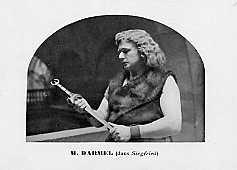
Discography Odéon, Paris 1914 ? X 111869 Sigurd: Esprits gardiens (and 1 unpublished take) X 111870 Hérodiade: Air de Jean (xp 6935) (and 3 unpublished takes) X 111871 Samson et Dalila: La meule (xp 6936) (and 1 unpublished take) X 111872 Tannhäuser: Reine d'amour (and 1 unpublished take) X 111873 Samson et Dalila: Duo with Bardot (xp 64010) X 111874 La fille du Far West: Elle me croit X 111875 Les huguenots: Plus blanche (and 1 upublished take) Faust: Salut demeure (2 unpublished takes) Discography of Hélène Bardot-Darmel X 111876 Werther: Air des larmes (xp 6402) 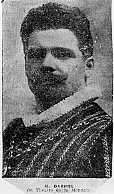
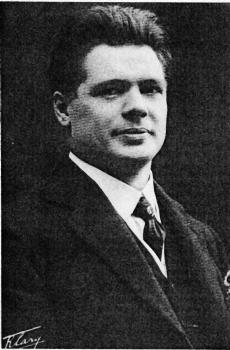 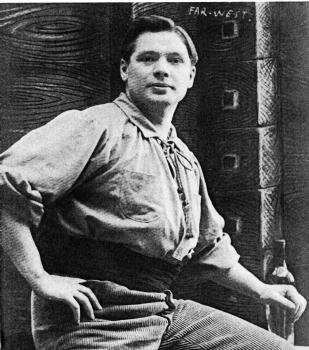 Reference: Les grandes voix du Hainaut à l'époque du 78 tours., Belgium, 1985. Reference: Richard T. Soper: Belgian opera houses and singers, The Reprint Company, Spartanburg, South Carolina, 1999. Additional discographical information comes from the collection of the late André Fildier. I wish to thank Alain François for the additional pictures of his grandfather and grandmother in Lohengrin, Fanciulla del West, Werther, Siegfried, Samson et Dalila, les Huguenots, in private attire and as a baritone. |
